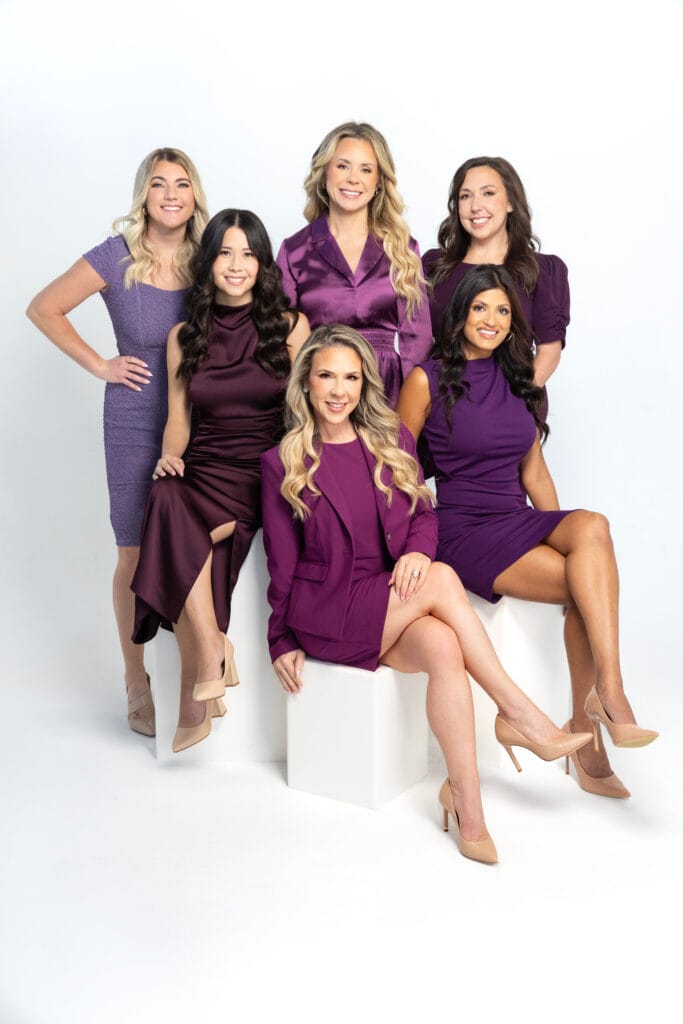Finding Hope at Embracing Life Wellness Center
Dr. Melissa Fickey is a board-certified psychiatrist who specializes in child and adolescent psychiatry, in addition to offering adult psychiatric services. A Tampa native, she is the founder of Embracing Life Wellness Center, with offices in Riverview and South Tampa, and offers the option to treat via telehealth. The practice’s mission is to provide high-quality, compassionate mental health care to patients in a relaxed and aesthetically pleasing environment.
A nationally recognized Transcranial Magnetic Stimulation (TMS) provider and speaker on NeuroStar TMS at national conferences, Dr. Fickey was proud to have partnered with NeuroStar to present NeuroStar TMS to the United States Food and Drug Administration to obtain this treatment's clearance for adolescents.
NeuroStar TMS is a non-drug treatment option for depression, anxious depression and obsessive compulsive disorder (OCD). Dr. Fickey and her team have performed over 32,000 treatment sessions.
Tell us more about the issues you are seeing nowadays within your office and within our own community.
Dr. Fickey: As a psychiatrist who treats children, adolescents and adults, I've noticed an alarming rise in mood disorders, anxiety and depression across all age groups, but especially in our young people. There has been a noticeable shift in how kids and teenagers handle stress, relationships and expectations since the pandemic. In addition, there are more instances of social disengagement, school avoidance and a greater dependence on electronic gadgets for comfort or approval.
These are not isolated incidents; rather, they are part of a pattern that indicates more serious systemic issues, such as the continued lack of access to mental health education and coping mechanisms.
According to the CDC, the number of adolescents reporting mental health issues is increasing. What do you think is the cause of this?
Dr. Fickey: There are several contributing factors. First, today's teenagers are growing up in a world that is extremely connected but emotionally distant. Despite its benefits, social media frequently encourages inflated comparisons and heightens feelings of inadequacy. The pressure to perform well in school and in society comes next. In addition, a lot of teenagers are exposed to global issues including political instability, violence and climate change. Last but not least, despite improvements, stigma around mental health still keeps many young people from getting help when they need it.
What are some of the concerning behaviors parents and caregivers can be on the lookout for, and what should we do if we notice them in our children? When is it more than normal teenage angst?
Dr. Fickey: Significant separation from friends or past interests, abrupt changes in eating or sleeping habits, inexplicable melancholy or anger, a drop in scholastic achievement or dejection are some warning signs. In younger children, symptoms could include increased clinginess, regression or frequent headaches or stomach aches. It's critical to see a mental health professional if these symptoms interfere with day-to-day functioning or last more than a few weeks. The key is early intervention.

There is hope. What treatments do you have available for families?
Dr. Fickey: Of course, there are many effective treatment options and hope. We provide very thorough psychiatric evaluations and consultations, medication management options and NeuroStar TMS therapy in our office.
How does NeuroStar Advanced TMS treatment work, and does it hurt? Is it expensive?
Dr. Fickey: Magnetic pulses are used in NeuroStar Advanced TMS, a non-invasive, FDA-approved treatment for depression, anxious depression and OCD to activate areas of the brain responsible for mood control. Essentially it's providing physical therapy for the brain and awakening areas thought to be underactive in patients and forming strong neuronal pathways that have been dormant.
There is no need for anesthesia or recuperation time, and the majority of patients report the treatment as a tapping sensation on their scalp. There are no systemic side effects like that seen with medications. After the 19-minute treatment, patients can resume their regular activities right away.
It is covered by most major insurance plans. We guide families through the insurance process and make it as easy as possible.
What other treatments are available for our teens and even younger children?
Dr. Fickey: In addition to NeuroStar TMS and medication management, teens and younger children can benefit from various forms of individual therapy and group therapy, as well as intensive outpatient or partial hospitalization programs as necessary. The objective is to meet each child at their current developmental, emotional and social stage.
How about the parents? Do you also treat adults and families as a whole?
Dr. Fickey: Yes we treat all ages of patients and family members. Mental health issues don't happen in a vacuum, and when one family member is having difficulties, the system as a whole frequently suffers. It is crucial to support caregivers' mental health for both their own wellbeing and the mental and emotional stability of their kids.
Anything else you want to add that you think is important for our readers to know?
Dr. Fickey: I want families to understand that asking for help is a show of strength rather than weakness and that they are not alone. Health care includes mental health treatment. More tools are now available than ever before, and early support may prevent severe problems later. Early intervention is key. There are real, research-based methods for healing, whether it's counseling, medicine, TMS or just instruction and direction. Reaching out is the most crucial step.
Discover More on Mental Health:
- Your Path to Wellness in Tampa Embracing Life Wellness Center: Empowering Minds, Restoring Balance, Transforming Lives
- How Hurricanes Affect Mental Health and 10 Ways to Help Your Kids
- The Most Important Conversations: BayCare Kids introduces a game-changing resource to battle mental health disorders
Presented by Embracing Life Wellness Center | Originally published in the November 2025 Issue of Tampa Bay Parenting Magazine.


